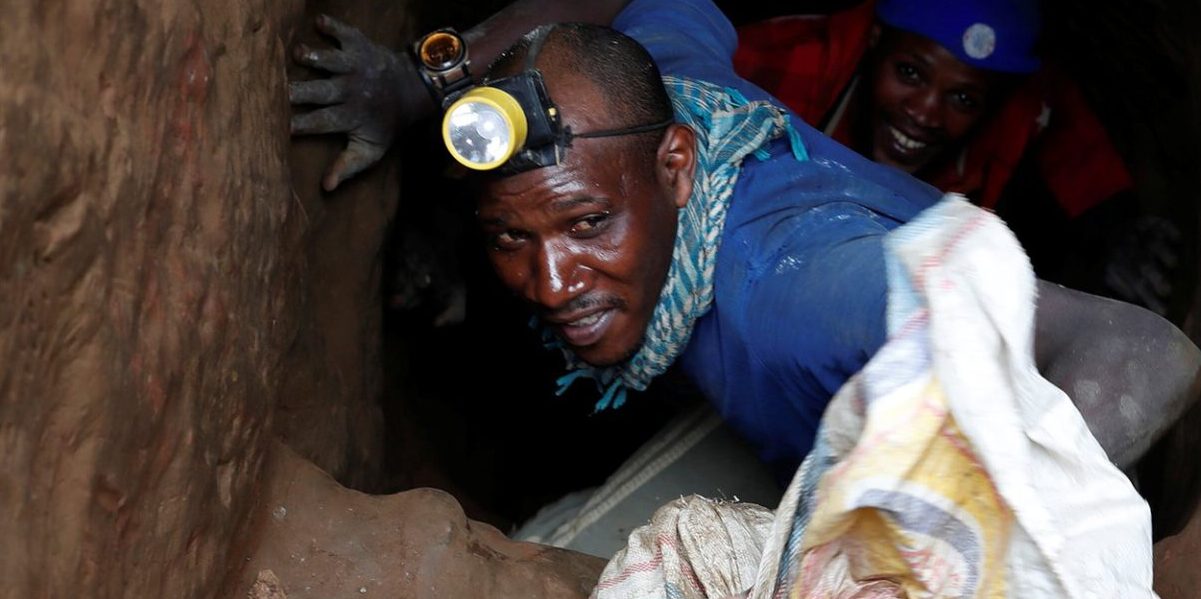Global Witness publishes details of fraudulent export of Congolese minerals from Rwanda
The ITSCI, a mechanism meant to provide a reliable chain of custody for 3T minerals, facilitates the laundering of contraband minerals from mines controlled by armed groups and benefiting neighboring Rwanda. These are the claims made by Global Witness in a report published a few hours ago.
According to the report, 90% of the quantities of coltan (main source of tantalum), tin and tungsten, three minerals better known as “3T minerals”, exported by Rwanda are illegally introduced from the DRC.
The British NGO, which specializes in the fight against the plundering of natural resources in developing countries and the political corruption that accompanies it, recalls that ” the metals resulting from the fusion of 3T ores are very widely used in electronic equipment such as mobile phones, computers and automotive or aeronautical systems ”.
A faulty program
Entitled “The ITSCI Laundromat: How a due diligence scheme appears to launder conflict minerals”, the study by Global Witness reveals that the Chain Initiative tin supply chain (ITSCI/ International Tin Supply Chain initiative), a mechanism aimed at providing a reliable chain of custody of 3T minerals allows the smuggling and laundering of these minerals extracted in the DRC.
“A key player in the launch of the ITSCI program in Rwanda estimates that only 10% of the minerals exported by the country had actually been extracted on its territory, the remaining 90% having been introduced illegally from the DRC” , specifies the study.
The most striking evidence put forward by the NGO on the flaws of the mechanism in the DRC is in the Nzibira region where a trading center accounted for nearly 10% of the minerals tagged in the province of South Kivu in 2020.
Reliable sources
It should also be noted that to conduct its investigation, Global Witness relied on field research in more than ten mining areas across North and South Kivu in the Democratic Republic of Congo as well as on interviews conducted with more than 90 members of government, the mining sector, civil society and academia, and on dozens of videos filmed by local researchers.
Two other mining industry sources told Global Witness that they have “repeatedly warned delegations from international companies, including Apple and Intel, since 2013 that smuggled 3T minerals account for up to 90% of the minerals exported from Rwanda, providing them with proof”. These same sources say they have “ alert the groups Motorola, Samsung, KYOCERA AVX Components and Kemet Corporation against the high risk of receiving contraband minerals from the DRC when sourcing from Rwanda” .
Citing numerous sources in the mining sector in the DRC and Rwanda, the study found that “the Rwandan government is fully aware that production volumes are artificially inflated by smuggling”, indicating that neither the government nor the ITSCI program publishes mine-scale production data that would prove otherwise.
A fraud that justifies everything
Global Wintess specifies in this context that “if the ITSCI has indeed taken measures against certain cases of minor smuggling, the large exporters of fraudulent minerals would not have encountered any resistance”. The largest of these companies, Minerals Supply Africa (MSA), was for several years the main exporter of 3T minerals from Rwanda.
Note that in the first quarter of 2021, production from validated mines in the Nzibira area represented less than 20% of the 83 tonnes of 3T ore labeled locally.
Interviews with officials, traders, miners and other actors confirm that “the bulk of tagged minerals come from unverified mines located in neighboring territories, including mines occupied by militias and frequently mobilizing labor of children”.
Other similar flaws in the ITSCI program have been spotted at seven other tagging points in North and South Kivu.
Refusal to confess
“ With its limited staff and weak controls, the ITSCI does not deter mineral laundering by miners and traders. Other sources further claim that, without authorization, ITSCI field teams are actively collaborating with miners and authorities to launder minerals, and in some cases even to take their commission on these illegal proceeds. State agents, who are generally badly paid, compensate for their salary by labeling as many bags of minerals as possible, whatever their origin. “, revealed the NGO in its study.
ITSCI officials strongly deny the involvement of this program in facilitating the large-scale laundering of contraband minerals in Rwanda and deny any allegations of willful misconduct or collusion.
As for the Rwandan Office of Mines, Petroleum and Gas, they claim to operate in full compliance with the guidelines of the OECD and the International Conference on the Great Lakes Region (ICGLR).
![]()





